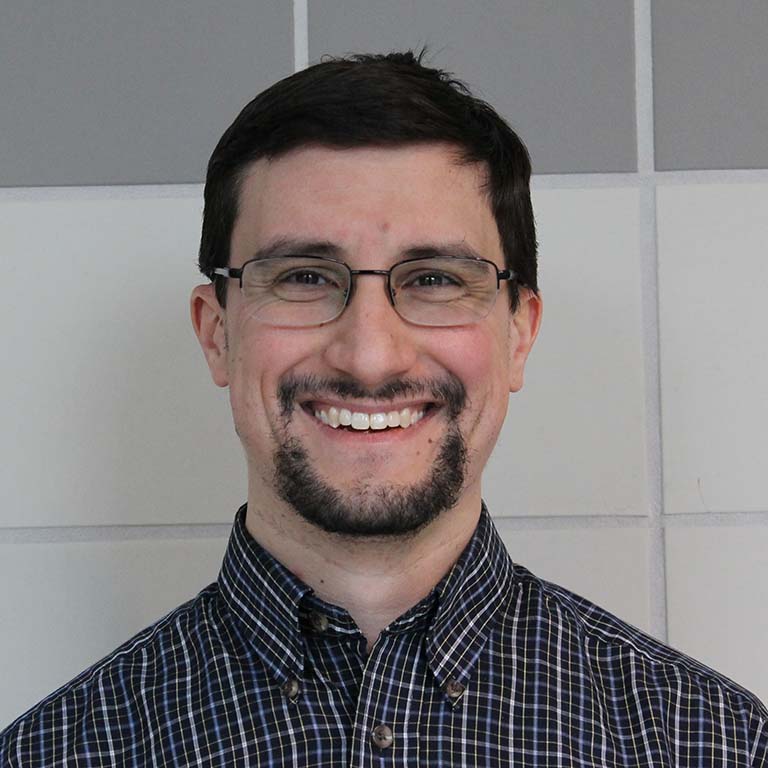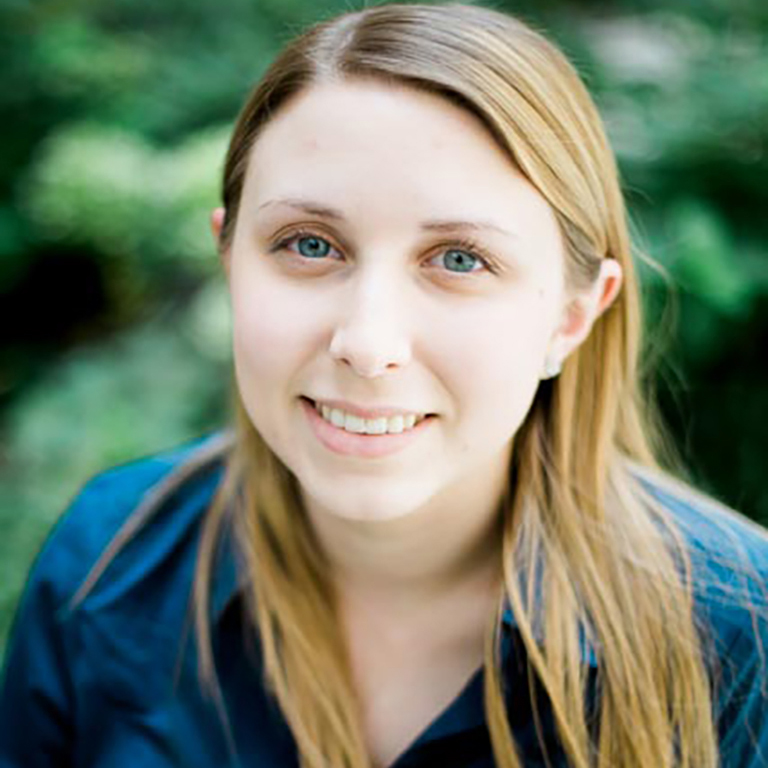Extern, not intern
Even in these COVID-complicated times, Biotechnology student Nick Frecker found a way to advance his career goals while making a difference.
Internships are more complicated than ever. COVID-19 made an already competitive market scarce, and the hunt has been on for remote offerings. Nick Frecker, a graduate student studying Biotechnology, was among the hopefuls pursuing a position. His opportunity came in an unexpected form: an externship with a group of strangers from across the state, tasked to create the next-big-thing in combatting COVID-19.
Nick, like many IU students, is subscribed to texts from Ascend Indiana, an agency that connects talent with employers and vice versa. He received a text from them about a project offered through a company called TechPoint: “I’d been in the process of looking but I hadn’t found anything. But when I saw this opportunity, they were putting it together quickly, and I figured I would jump at the chance.”
Last spring, Nick was accepted and plunged into TechPoint’s Summer Opportunities for Students (S.O.S.) Challenge, an intense five-week-long project. In this program, teams are given a topic or “challenge question” related to COVID-19, and they must prepare a product and a go-to-market plan in response. He explains, “[T]here are 9 challenge questions, and each one has a certain number of teams. My question is COVID-19 outbreak detection. The idea is to develop a solution to address how to identify where COVID is going to show up next and, if possible, to mitigate it.”
Students who complete the program are given $500 and each winning team receives $2,500 and the chance to give a virtual presentation of their project to Governor Eric Holcomb and leaders in Indiana’s technology sector.
The catch? For their safety, they’ll never meet in person.
All teams are divided into two squads: “There’s the so-called ‘Go’ squad who identifies the potential customer or customer profiles and also comes up with a business marketing plan. And then there’s also the ‘Pro’ squad who actually builds the product, website, app, whatever they decide and takes care of all the technical aspects.”
Each squad on a team has its own coach, who is either a business owner or volunteer with real-world experience in the Indiana tech community. “The coaches are professionals in industry,” Nick says. “Someone we can rely on for expertise, to guide us. They give us all kinds of little tips of things to consider or tips about what we should focus on next given the timeframe and things like that.”
Nick’s team worked on their own website called IndySARS. Modeled on Yelp and similar review sites, IndySARS rates businesses on several dimensions of COVID-19 safety and sanitation.
“The ratings assess whether hand sanitizer was available, whether the places were clean and disinfected, whether employees were wearing masks, an estimate of what percentage of customers were wearing masks, and how easy it was to socially distance from others,” he says.
In order to make the website possible, Nick began teaching himself basic coding and website design. “I was watching YouTube videos and reading tutorials: ‘How to build a website.’ ‘How to change the font,’” he laughs. “All that kind of thing.” He sees this new skill as a way to advance his own scientific career one day—he plans to pursue a career in pharmaceutical research, specializing in oncology medicine.
Though Nick is realistic about the drawbacks of working virtually, he notes that his project has more than made up for any difficulties by allowing him to work as part tech developer, part entrepreneur and learn more about SARS-CoV-2.
“[I]t’s been challenging. Challenging to stay connected and manage expectations. But it’s also been really interesting. I’ve learned a lot. It’s given me the opportunity to look into what published literature is out there about COVID, the disease itself, and the scientific recommendations for mitigation.”
Nick’s team didn’t present their website to Governor Holcomb, but their product stands alone as an outstanding community resource that promotes public health. Despite taking place remotely during COVID, this opportunity has still allowed Nick and other participants a chance to hear from guest speakers about interviewing for jobs, fellowship opportunities, and other resources to make them more career ready.
“Connections like that I found really helpful,” Nick says. “And I certainly hope I can continue to keep in touch with these people and groups and advance my career. I definitely view that as a likely outcome of this. These opportunities have been pretty worthwhile.”


 The College of Arts
The College of Arts